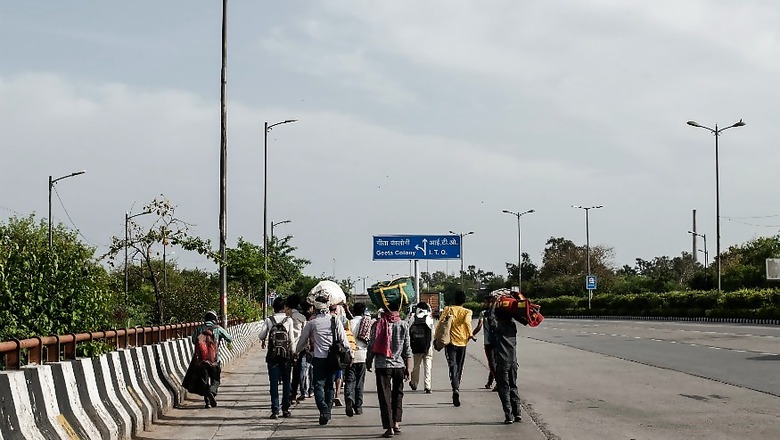
views
India needs to spend wisely given the enormous likely demand for fiscal resources in the coming months, but “skimping on helping the needy is the surest way to lose the plot", wrote economists Amartya Sen, Raguram Rajan and Abhijit Banerjee, for the Indian Express.
India’s biggest worry, after the extension of the Covid-19 lockdown is that a large number of people will be pushed into poverty, by the combination of the loss of livelihoods and interruptions in the standard delivery mechanisms. “That is a tragedy in itself and, moreover, opens up the risk that we see large-scale defiance of lockdown orders — starving people, after all, have little to lose,” the economists said.
The economists further opined that India should do what it takes to dispel people’s fears and ensure that their minimum well-being should be secure.
Outlining a series of measures that can alleviate the hardship of the poor, they pointed towards the availability of food stocks at the Food Corporation of India. “...The stocks of food at the Food Corporation of India stood at 77 million tons in March 2020 — higher than ever at that time of the year, and more than three times the ‘buffer stock norms.’”
They said that the government has already acknowledged the disruptions by the agricultural markets due to the lockdown and is purchasing stocks that farmers need to do away with.
“Giving away some of the existing stock, at a time of national emergency, makes perfect sense; any sensible public accounting system should not portray it as inordinately costly,” they said.
The economists also took note of the government’s decision to offer a supplementary PDS provision of 5 kg/person/month for the coming three months, but warn that the three months might not be enough.
“…a substantial fraction of the poor are excluded from the PDS rolls, for one reason or another (such as identification barriers to get a ration card that turn out to be hard to overcome), and this supplementary provision only applies to those who are already on it.”
Citing Jharkhand’s example, they said that there is evidence of lakhs of pending applications for ration cards in the state. The correct response is to issue temporary ration cards —maybe for six months — with minimal checks, to everybody who requires one, they suggested.
Detailing other possible interventions besides expanding the scope of the PDS, they wrote, “…It also means setting up public canteens for migrants and others who are away from home, sending the equivalent of the school meal to the homes of the children who are now stuck at home, and making use of reputed local NGOs that often have a reach among the most marginalised that exceeds that of the government.”
Highlighting other fallouts of the pandemic, they talked about the many consequences of the unexpected loss of income.
“…Farmers need money to buy seeds and fertilizer for the next planting season; shopkeepers need to decide how they will fill their shelves again; many others have to worry how they would repay the loan that is already due,” they opined.
The economists also suggested that the government has to a certain degree, addressed this through the cash transfers. They, however, add that the amounts are small and narrowly targeted. “Why only farmers and not landless labourers, especially since MGNREGA is hobbled by the lockdown,” they asked.
Adding that the aid needs to be extended to the urban poor, they said that the priority must be to “err on the side of being inclusive.”
“P Chidambaram’s (Congress leader and former union finance minister) idea of using the MGNREGA rolls from 2019, and those covered by Jan Arogya and Ujjwala to identify the poor households and to send them Rs 5,000 each to their Jan Dhan accounts, seems like a good first step,” they added.
All three economists also emphasised on the need to ensure that funding is accessible to the state and local governments, which can find successful ways of reaching out to those facing deprivation. “If there was ever a challenge that requires brave and imaginative action, this has to be it,” they said.



















Comments
0 comment